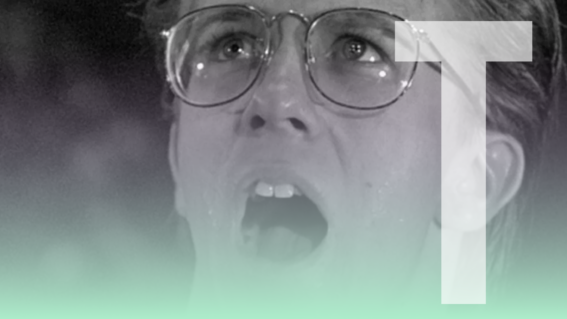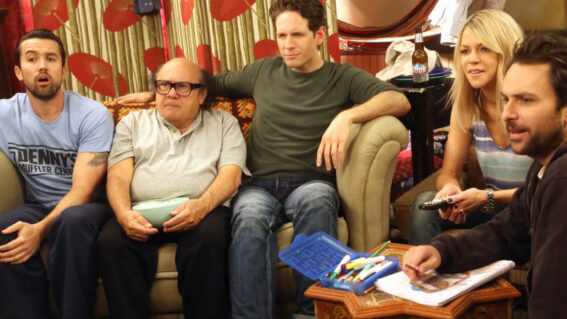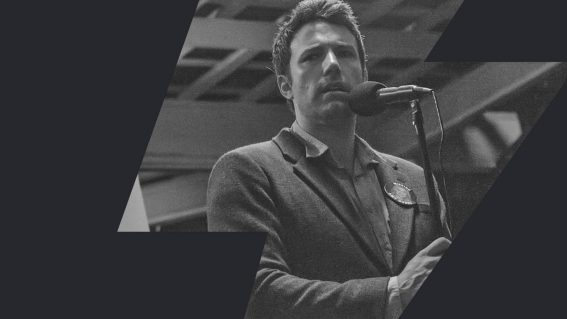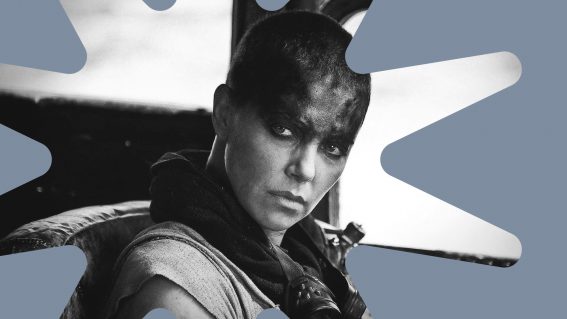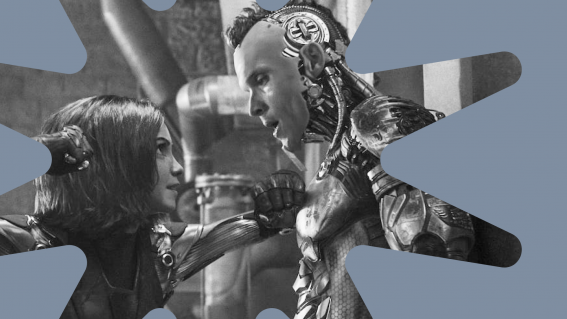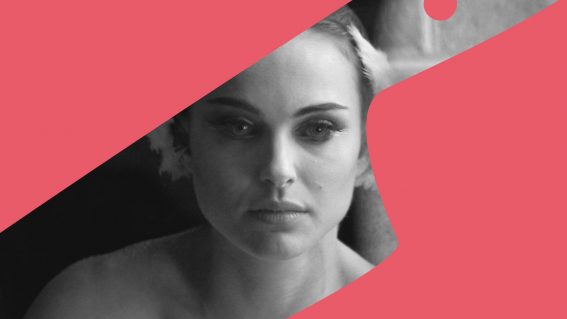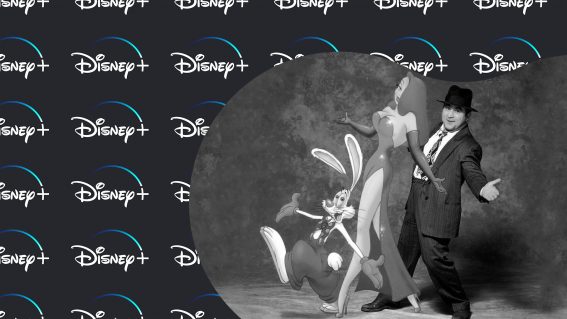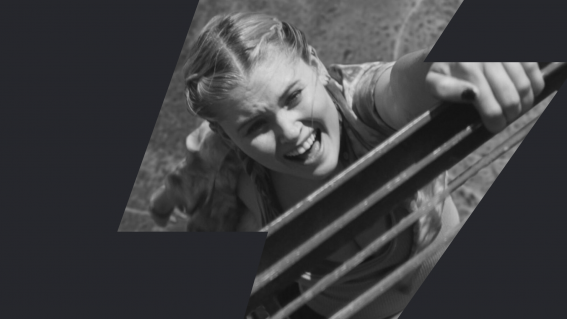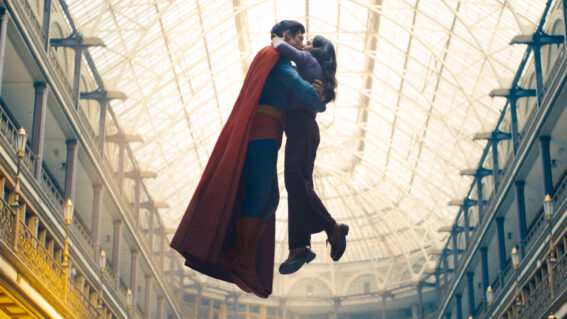Taryn Brumfitt Wants Us to ‘Embrace’ Our Bodies
Taryn Brumfitt, everyday Aussie turned body image campaigner, went through a life-changing experience when a before-and-after image of her figure went viral, seen by more than 100 million worldwide. Her documentary feature Embrace, playing at the NZ International Film Festival (where she’ll present her film), explores issues of body image among a diverse range of women. […]
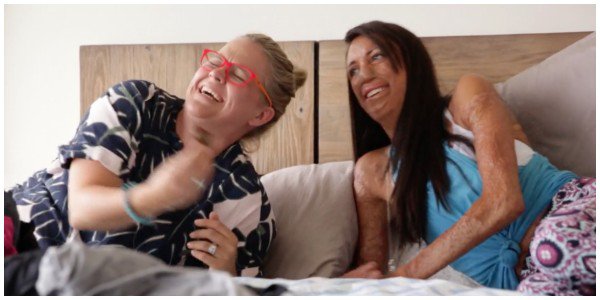
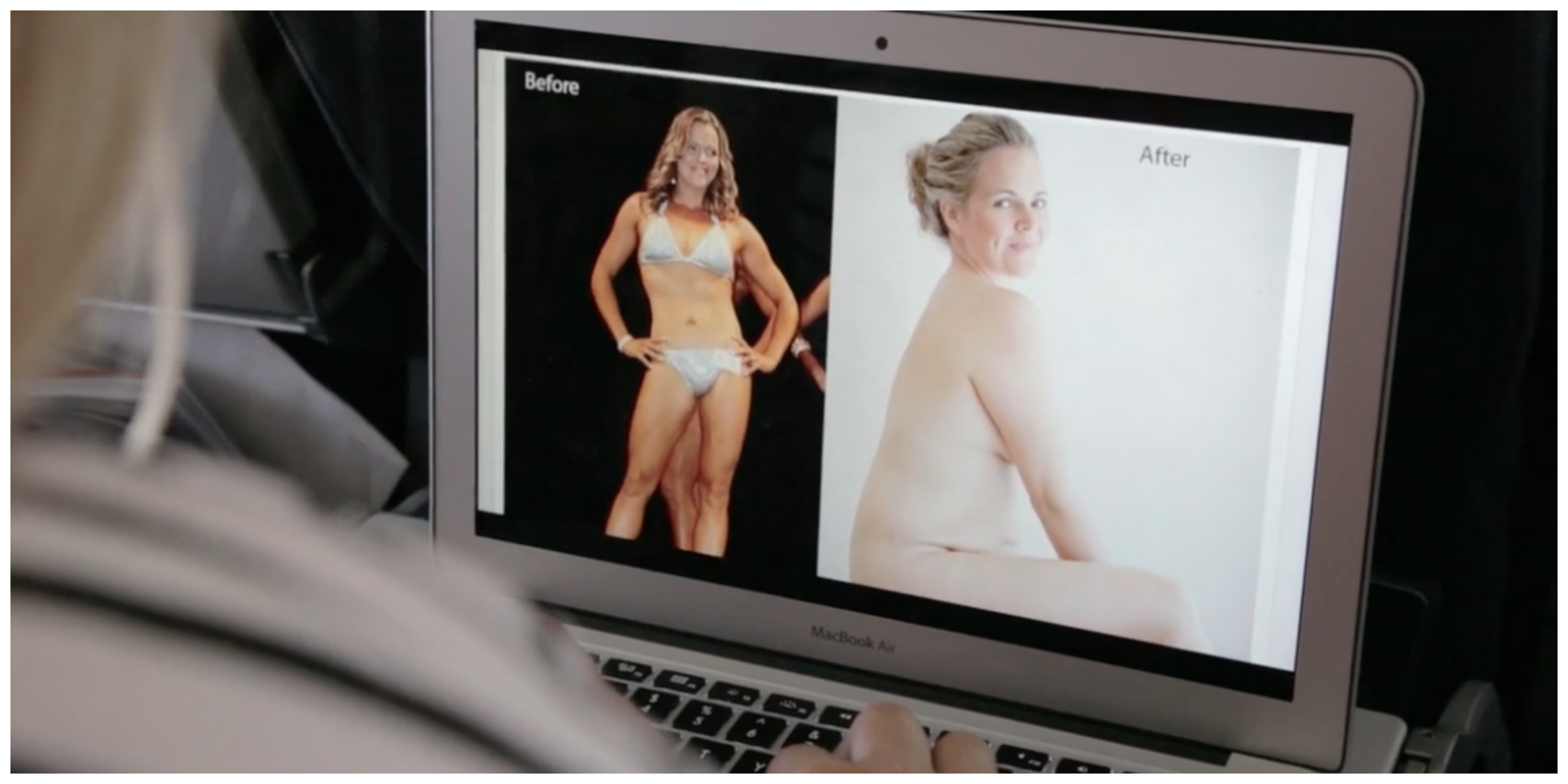
Taryn Brumfitt, everyday Aussie turned body image campaigner, went through a life-changing experience when a before-and-after image of her figure went viral, seen by more than 100 million worldwide. Her documentary feature Embrace, playing at the NZ International Film Festival (where she’ll present her film), explores issues of body image among a diverse range of women. We chatted to Brumfitt on the phone.
FLICKS: It’s been a really long journey for you, obviously, as the film documents. A journey that started with photographs and ended with a feature film.
It must have been a very challenging but inspiring journey for you to be on.
TARYN BRUMFITT: Yeah, definitely challenging. I will never in a very nonchalant way say, “I’ll just make a documentary” [chuckles]. I’m sure filmmakers would have rolled their eyes when they heard me say that the way I said it, but now I know, because I have spent those two years filming and 23 weeks editing, and the highs and lows that come with making a film, and a full feature. It’s something that I enjoyed immensely, but I’ve never done anything more challenging, ever. But, I would do it again all day long.
It’s an unorthodox path to filmmaking, really, isn’t it? It seems like a very organic response to the reception that your initial posts got around the world.
Yeah, it was some of that, but it was also a lot of frustration that after that photograph went viral, I spent quite a bit of time in the media talking about my story. I actually became really frustrated with the traditional media of four-minute TV interviews, and the same for radio. What was happening was I’d just become so frustrated that I wasn’t able to convey enough of not just my story, but stories of other women around the world.
I needed a bigger, larger, longer platform, and having worked as a photographer for 12 years and understanding creative industries, and how to make things look good, and enjoying storytelling, I thought, “Well, this is what I’ll do. I’ll take this frustration and turn it into 90 minutes where I can really get across all the things that I am not able to get across in those very short TV interviews.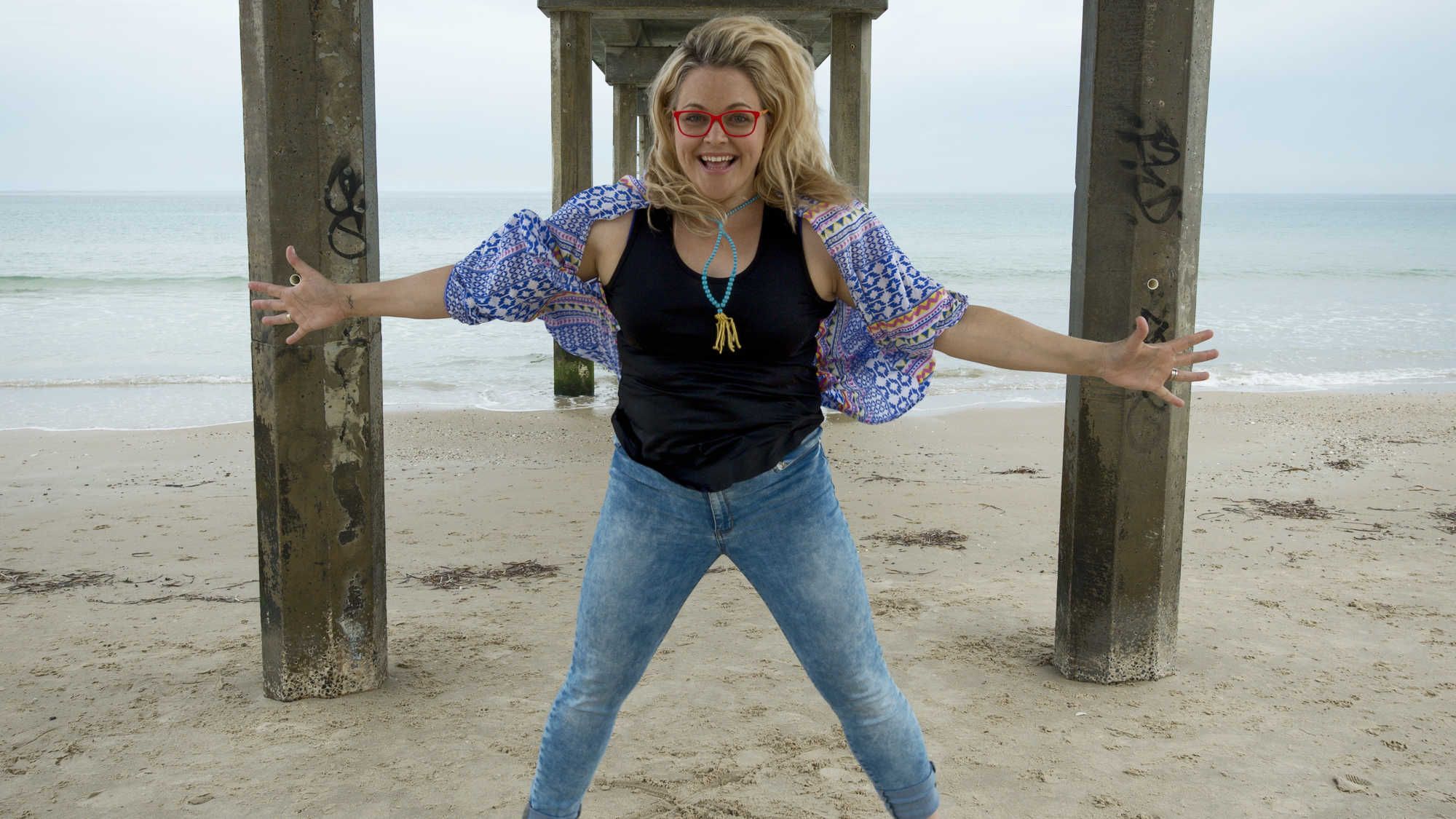
The film’s a mix of a real commonality of experience, and also really diverse experiences as well. Is that a fair way to sum up the kind of issues that are at the heart of the film?
Yeah, I do. I agree, and that was a very well thought through plan of mine, in terms of all those people that were interviewed. It was very important for me to have that diverse range of stories and people, because I would like anyone to come and see Embrace and connect with at least one person. I really think, given the range of interviewees, that will be achieved. You’ve seen the film, obviously, so those characters – I mean, my gosh, I love them all. They’ve all become friends since, but they’re also incredibly diverse and different.
What was it like approaching people to appear? What sort of hit rate did you get from your interview subjects, and how hard was it getting people on camera?
Not very hard. You know, I think all the people that were in the film, they had a story or they had a connection with body image. Some of them felt feisty and frustrated, like Mia Freedman at the beginning – the head of Mamamia here in Aus – and other people like Turia Pitt. She’s shared her story many times, and I think she was very open to being part of the documentary because she’s on a mission to help other people feel and embrace their bodies. Look, it wasn’t hard, but it wasn’t easy at the same time. I remember being on the road to London, via Austria, Berlin, and then Paris. I decided that I could do seven countries in a few weeks, and it really threw me [chuckles].
That was very hard, but Harnaam, the bearded dame – I remember being on the phone to her trying to tee up an interview, and she was sort of going, “Oh, I don’t know if I can” and I was like, “You have to. You have to be part of this.” So, there were some battles to get people just to even give up their time, because it’s the unknown. I was an unknown entity in terms of filmmaking.

I’m going to presume that even where the specifics of experiences differ, there’s still commonality of experience between, obviously, interviewer and subject while making this film. In parts of the film there are what look like on-camera friendships developing. Is that what the process was like?
Yeah, absolutely. Most of those people that you see in the film are, without question, lifelong friends. I think that when women open up – when anyone opens up and shares their story – there’s a real sense of empowerment that comes with that sharing. I guess that’s from me being so open and talking about all of the things I’ve talked about. I think it helps other women to feel comfortable doing the same.
Someone like Ricki Lake – it was so amazing to hear her, to be very humble, so raw, so open, so down-to-earth. She really opened up in that interview, and I think what that will allow the audience to see is that this is a problem for anyone, anywhere, whether you’re a celebrity, whether you’re an international model, whether you’re an everyday person. Most women have been affected by poor body image, but we’re ready to do something about it. We’re ready to create the change within ourselves and for the next generation.
How can men ally with this issue? What information can someone like myself take on board and utilise to help others around me?
Well, I think the first thing that men need to recognise is that they are part of this. You will have a mother or a sister, or a girlfriend or a wife, or you might have a daughter one day. You might have a son one day. We are all intrinsically linked in this problem. The amount of emails I get from men who say “I’ve told my wife a thousand times I love her just as she is, but she just continues to hate on her body and I don’t know what to do”. I will encourage men to go see this film, and open up a conversation with their loved ones, with their sister, with their mother, and learn from some of the experiences that we’ve had.
Let me just think about something else I can say about that. You are right there alongside us. You are side by side with us in this battle and this war that we’re having, and whether it’s the war that we’re having on our own, with ourselves, or whether it’s the marketers and the global organisations that prey on women’s insecurities to make them feel bad about themselves, this is no good for anyone.
The husbands are at home listening to their wives and not wanting to go out, like I was. You saw that in the film. That’s not an enjoyable family environment. So yeah, see the film and start a conversation, I think, would be the best answer.

Are there changes to how you viewed these issues that came about through making the film yourself? Did your views broaden beyond just meeting some of the subjects in your film?
One of the things before I went out into the world that I wondered was “Is this affecting people in countries like the Dominican Republic?” Or, “what is it like in Europe, or Canada, or wherever it may be?”
I was really shocked to discover that no matter where I went, there was always this overwhelming feedback of negativity about one’s body. Even the woman in the Dominican Republic, who will probably never leave the island, barely has enough money for electricity, still loathes her body and wanted to change it. So, I guess that was very surprising, overwhelming, and mostly heartbreaking to discover that what I thought might be true was definitely true.
Absolutely. What a horrible commonality of human experience we’re talking about here.
I know, right? But the flip side is that with all the conversations that I’ve had with women, no one actually wants to feel this way, and we are also really sick and tired of opening up a magazine, or seeing the billboards on the street, or watching the bus advertising go past – we’re really sick of seeing that one type of body celebrated when we come in all shapes and sizes and abilities. I believe that there’s a groundswell, and a real push back that’s happening, where we’re just going to say “no” to those messages and those fears that feed on women’s insecurities. I really hope – and this is my hope for Embrace – that it opens up a conversation that we don’t actually have to live our lives like this.
We don’t need to look externally, in terms of diet, or a pill, or a potion, or a lotion, or any of those things, to embrace and love our bodies. It’s within our minds, and we all have access to flick that switch. We’ve got a rich and abundant life ahead when we do. Hopefully they see some of that inspiration through my story. I hated my body. I didn’t want to go out. I learned to love it, went nude – some of the things that I’ve done, had someone said that ten years ago, I would have bet my life and my house on it not happening. I guess that’s really been quite the journey. I guess you can never say never.
What time of the year is the Sydney Skinny?
It is in February, so it’s nice, it’s beautiful, it’s warm. It sounds like you want to come over! I’ll let you know, Steve, when it’s on.
Thanks so much, that gives me months to feel comfortable about what everyone else is going to have to put up with in me taking part.
The Skinny is a counterbalance, I suppose, to some of the more cautionary elements of the film. That there are rewards from taking action and the film isn’t just about receiving information.
No, I think, for me, that would be the greatest crime. As much as I would love people to be entertained and enjoy the documentary, I want people to do something, even if it’s just one small change. I’ve had that feedback from the test screenings in Adelaide, and from the Sydney Film Festival. I think sometimes you can’t unsee something, or you can’t not hear those words of Turia Pitt – the way that she looks and she’s saying “You know what? If I can get over this and get on with it, I don’t know why anyone else can’t either.”
I just think they’re those little bombs that will be seeded in people’s minds, that this whole journey to loving yourself, and loving your body, and embracing all that stuff, it starts with just one thought and then it kind of grows like a muscle. So, I really hope that what will happen with Embrace is that will develop for people naturally, and the conversation will start too. Even within my school community, I hear some of the mums, if someone says something negative about themselves, it’s like, “come on, that’s not embracing.” I think there’ll be a lot of changes in mindsets just through a very simple thought and a conversation.





